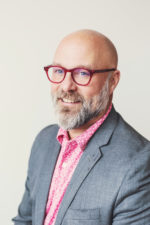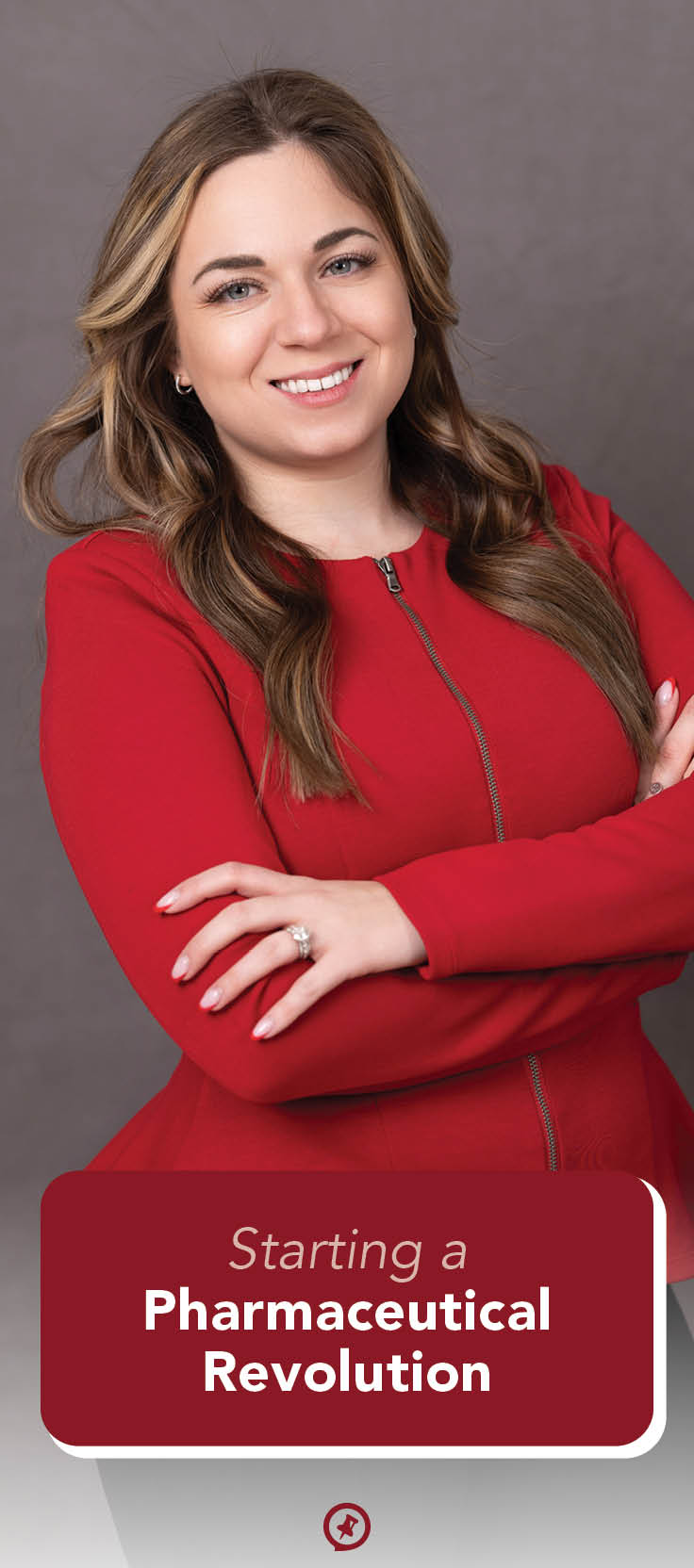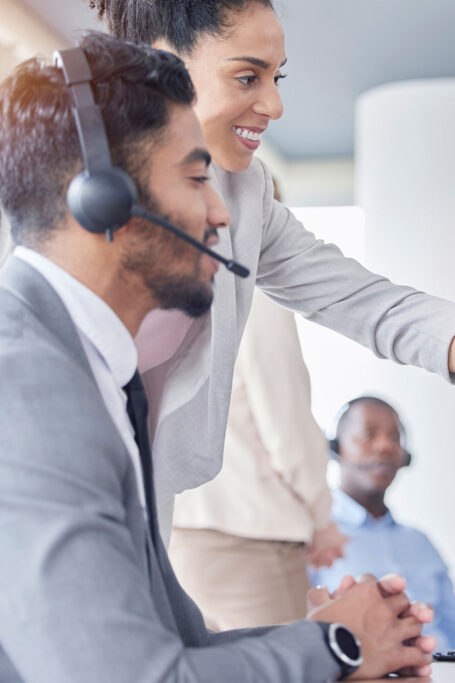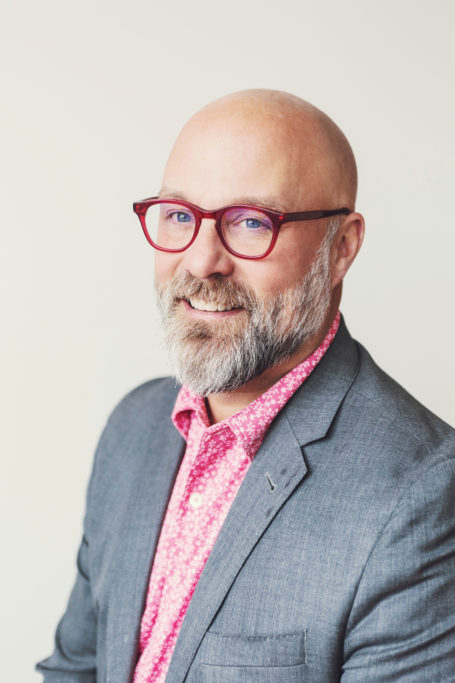Starting a Pharmaceutical Revolution
Lindsay Dymowski, president of Centennial Pharmacy Services, discusses how her family-owned business is disrupting the multibillion-dollar drug industry.
Tell us about your family and how it started Centennial:
We’re from inner-city Philadelphia. My dad was a dealer at the Atlantic City casinos, and my mom was a stay-at-home mom. To provide a better life for my brother and me, my dad decided to go to pharmacy school. He switched over to night shifts in Atlantic City, went to school during the day, and worked at Eckerd in between. After graduating, he tried the retail pharmacy route before working for a big wholesaler that was opening pharmacies. However, soon after he started, it reversed course and closed its pharmacy departments. So my parents decided to give business ownership a go by opening their own store.
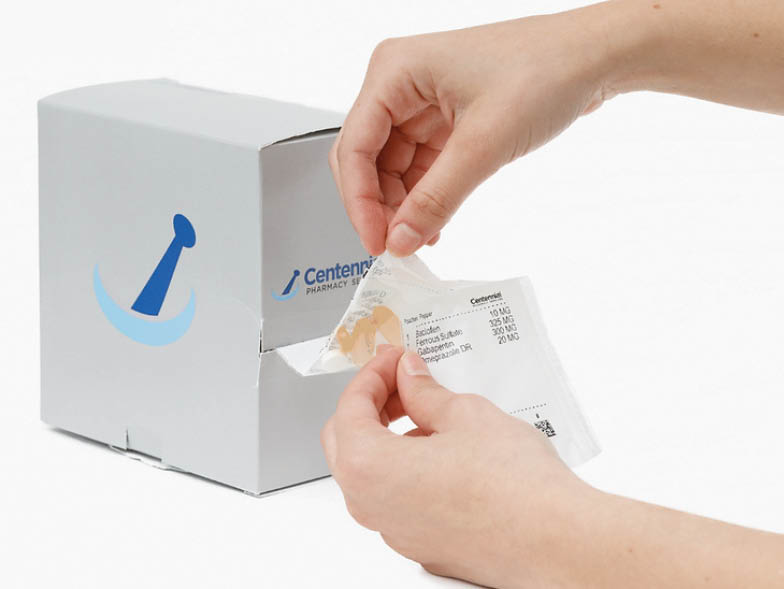
Did you also go to school for pharmacy?
Yes. By that time, we had opened several more independent pharmacies, and I had intended to become a pharmacist and run one of those locations or open a new one. However, in college I came across some unique pharmacy concepts, such as multidose packaging and value-based care programs. And I thought that a lot of machines that were historically used in hospital and long-term-care settings would also be useful for patients in a retail setting. Once I left school, I started introducing some of these things to our business.
Which gaps did Centennial fill in the industry?
We’ve always focused on adherence. While I was growing up, we frequently had to call patients and beg them to pick up their refills. People simply don’t like taking medicine. I knew there had to be a way to make it easier for them. When we implemented the multidose packaging solution, everything just clicked. The packaging is so easy and convenient—each package contains all your meds for a given day and time so, for example, you know what to take on Monday morning—and you can customize it any way you want. We soon realized that by helping people take their medications, we could also make a difference with other health issues, including decreasing rehospitalizations and improving diabetic and blood pressure metrics. So our model is focused on long-term care. A pharmacy doesn’t have to be just a corner store that counts pills and throws them in a bottle—it can actually be a provider on the health-care continuum and make a bigger impact on health.
Does that also help your bottom line?
It does. For instance, you’ll hear a lot about DIR fees or clawbacks, which are imposed on pharmacies by insurance companies or pharmacy benefits managers. A pharmacy may think that it’s being paid ten dollars for a prescription it filled, but at the end of the year, if there’s a clawback from the insurance company, it may only get two dollars. Our business is so adherence and metrics related, we’ve been able to mitigate those fees significantly. As a result, our revenues and profits are much higher than a traditional retail pharmacy.
How has COVID-19 impacted your business?
We were a successful business before COVID. But the fact that we were providing pharmacy services differently—besides using multidose packaging, we are community based and hand deliver medicine to patients’ doors—gave us opportunities to partner with different health-care systems that we’d never had access to before. It also helped us establish that we’re not looking to overstep our boundaries by telling PCPs what to do with their patients. We’re just here to provide additional support, our clinical expertise, and the best pharmacy care their patients can receive. Such conversations were much easier when it came to COVID because providers relied on pharmacies to get access to patients who were afraid to go into a doctor’s office or hospital and, of course, to continue getting them their medications.
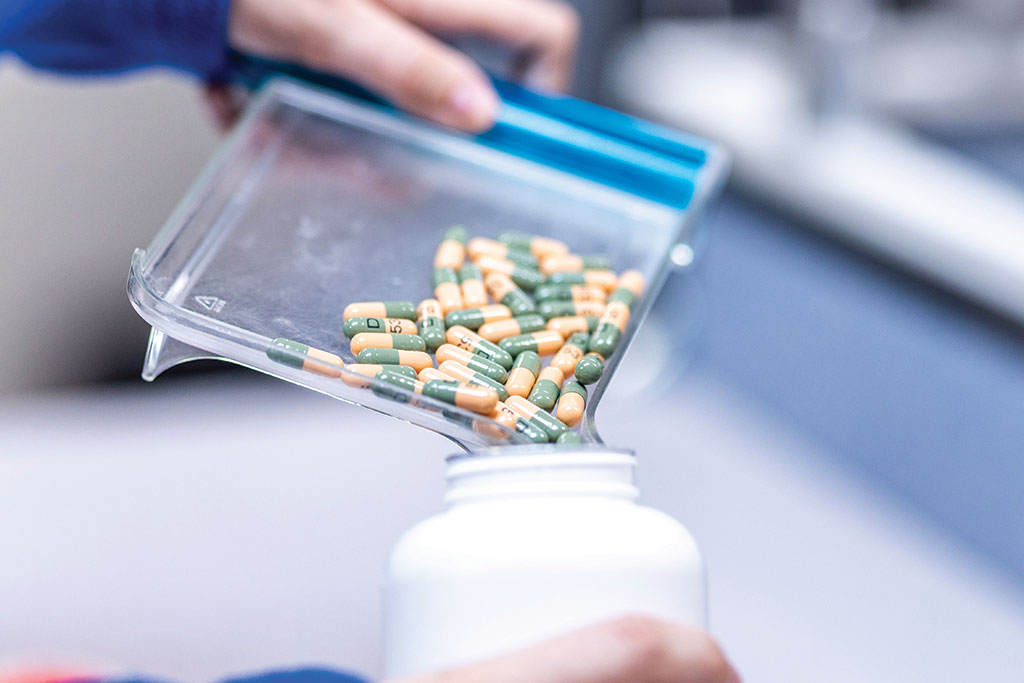
Overall, what does a community-based approach add to the pharmacy experience?
We pride our business model on being community based. We have plans to grow, but we’re steadfast in expanding with this model only because we don’t believe that pharmacy is something that should be provided from several states away. Just like you go to your local doctor, you should have that same type of relationship with your pharmacy. And I think it’s much easier for patients to relate to individuals who are living in their community and can talk their talk and walk their walk. It makes a huge impact because you earn more trust, and that’s been crucial to our success.
What does innovation mean to Centennial?
The biggest innovation so far has been the pouch packaging, which makes it easier for patients to live independently at home, stay out of the hospital, and actually get healthier because they’re taking their medications properly. That makes a world of difference not only for patients but also for providers—doctors, hospital systems, and accountable-care systems who lean on us to support patient initiatives in a way that had never been done before. That partnership is also a big win for patients because we’re not just helping them with their medications; we’re also helping them monitor their health and keep in touch with their doctors. We’re always looking three to five years down the road too. I think there are a lot of things that technology can bring to the table right now, specifically wearable technology—but we need to make it more accessible. Unfortunately, the sickest people, which is typically the population we’re helping, also tend to live in deprived inner-city or rural areas. So they may not have electricity to plug in a machine constantly or a phone that has enough storage to download a health-tracking app.
In addition, the baby boomer generation is aging. By 2030, we’re going to have a massive number of sixty-five and older individuals who could be in assisted-living or long-term-care facilities, but there simply won’t be enough beds. Pharmacy will be a key piece in supporting them and making sure there’s easily accessible, affordable care in their homes to help them stay independent.
Are the internal dynamics different in a family business?
Our dinner conversations often ended up being about the business when I was a kid. I remember sitting around our kitchen table talking about what we should name the pharmacy and what we should do to set it up. It took years for us to get into the groove of learning how to be a family outside the business and partners inside it. The four of us equally own Centennial, and we each have our own lanes. We also have a strict rule that we won’t override each other’s expertise. Everyday life was different too. My dad would sometimes pick me up from school and take me right to contract meetings. I was thirteen years old and discussing drug contracts with McKesson and Cardinal Health, which was the best education I could imagine.
What other inherent benefits do family businesses present?
I love working with my family every day because they have my best interests at heart, which a lot of people can’t say about their jobs. After all, my brother and I weren’t born into this; we grew up with this—we built the business with our parents every step of the way, from looking for our first location to naming the business. My parents were adamant about advocating real-life business experience as much as a school education. They instilled in us such great values, acumen, and confidence regarding how to own and operate a business. Besides confidence, what other traits do you think make for a successful entrepreneur?
Tenacity would be one. For example, when we started our adherence model, we had to sell the idea. As a twenty-year-old girl who looked like she was twelve, I’d knock on doctors’ doors and say, “I think we can help you.” I’d promptly get a response like “Who are you? Why are you trying to tell me how to run health care? And how old are you?” [Laughs] I quickly learned that you can’t be afraid of being told no. You can’t take offense or take it personally; you just have to let it roll off your back. You also need to find a mentor: someone who truly believes in you and what you’re doing and will be your champion. I found that person, latched on to them, and learned from them about how to properly communicate with providers. You also must be willing to learn and change. I’ve always asked how we could make Centennial better—which doesn’t always mean moving it forward. Sometimes it means reevaluating and changing things. Maybe you realize that what seemed like a great partnership ended up with both parties not meeting expectations. If it’s not a great fit, that’s OK. As much as you succeed, you’re also going to fail.
For more info, visit centennialpharmacy.com









